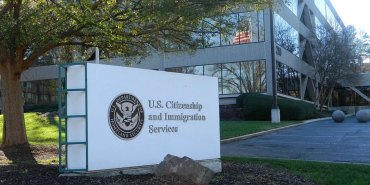USCIS Simplifies Rules for Green Card Holders Seeking Citizenship

The United States Citizenship and Immigration Services has introduced a major modification to its naturalization policy, streamlining the requirements for lawful permanent residents seeking citizenship.
Under the revised guidance, applicants now need only demonstrate lawful admission for their initial entry or adjustment to Lawful Permanent Resident status, marking a departure from previous requirements. The path to naturalization, through which LPRs attain US citizenship, continues to follow the fundamental criteria established in the Immigration and Nationality Act. These provisions maintain the core requirement of LPR status for a minimum of five years, along with verification of legal admission under applicable immigration laws at the time of initial entry or status adjustment.
This policy revision stems from a landmark Fourth Circuit Court of Appeals decision that challenged the previous interpretation requiring proof of lawful admission for each reentry into the United States. The court's ruling specifically addressed cases where returning LPRs received parole during pending removal proceedings that were subsequently terminated, affirming that such individuals still satisfied the lawful admission requirement. The court determined that examining each reentry imposed unwarranted burdens beyond the INA's intended scope.
In response to this judicial interpretation, USCIS has refined its approach to focus exclusively on the initial admission or adjustment to LPR status when evaluating naturalization eligibility. This streamlined policy eliminates considerations of subsequent reentries, regardless of their circumstances, thereby simplifying the citizenship application process. Taking immediate effect, this updated guidance encompasses all pending naturalization applications and those submitted from November 14, 2024, onward.
The revision represents a significant step toward reducing procedural complexity and establishing more transparent guidelines for citizenship seekers.














Comments
I would like to get my…
Permalink
I would like to get my nationalition and im a veteran of the US Marine corps. How can I do so?
I've been a Permanent…
Permalink
I've been a Permanent resident since 5/18/72
with a clean and spotless background and excellent credit
I'd like to become a citizen
Please advise.
Thank you.
The law has always been like…
Permalink
The law has always been like that Versace. 5 years and you can apply for citizenship. If I may say, all loyal green card holders who have never left the country for 10 years must be automatically be converted and eligibility satisfied to become a citizen.
As a green card holder I have been here since 2011.
Served as a Clinical laboratory technologist and was a front liner during the COVID years . I never left USA and never went home to my country the Philippines since 2011. I should loyalt to the USA and loved the people but then I was denied by the USCIS and thought of me as a
Person of not having a good morale character and denied my Citizenship application. Not fair at all!
I've been a legal resident…
Permalink
I've been a legal resident since 1979 and a green card holder since 1985. Was married to a US citizen but now divorced. Have two US citizen children. Have not left US in about 10 years. What does it take to become a citizen and what is the cost?
I feel very bad for you and…
Permalink
I feel very bad for you and I really couldn't understand how they got that conclusion:
then I was denied by the USCIS and thought of me as a
Person of not having a good morale character and denied my Citizenship application
been parment resident for…
Permalink
been parment resident for over 32 years disabled and married to us wife for 35 years and would like us citizen ship need help because it costing to much keep renewing resident green card.
I am a permanent resident…
Permalink
I am a permanent resident and served in the USMC in 1978 -1983. I was told that upon taking the oath to serve in the USMC I would be a citizen upon receiving an Honorable Discharge. It was in 2013 that I had to reregister with immigration after paying $1,000 in processing fees in order to receive a driver's license to retain employment. So after being a resident since 1964 and a former Marine plus employed since 1983 till disability in 2021, what else do I have to do to become a citizen?
Can the author, Martin Olage…
Permalink
Can the author, Martin Olage, please site the particular case? There is nothing yet on the USCIS website reflecting revised guidelines.
https://www.uscis.gov/sites…
Permalink
In reply to Can the author, Martin Olage… by William Hill (not verified)
https://www.uscis.gov/sites/default/files/document/policy-manual-update…
To everyone (from a lawyer;…
Permalink
To everyone (from a lawyer; not practicing immigration law but still able to comment and provide link, but please note I am not providing legal advice here):
Here is the link from USCIS providing all relevant information:
https://www.uscis.gov/sites/default/files/document/policy-manual-update…
It was issued just a few days ago. Godspeed.
Add new comment